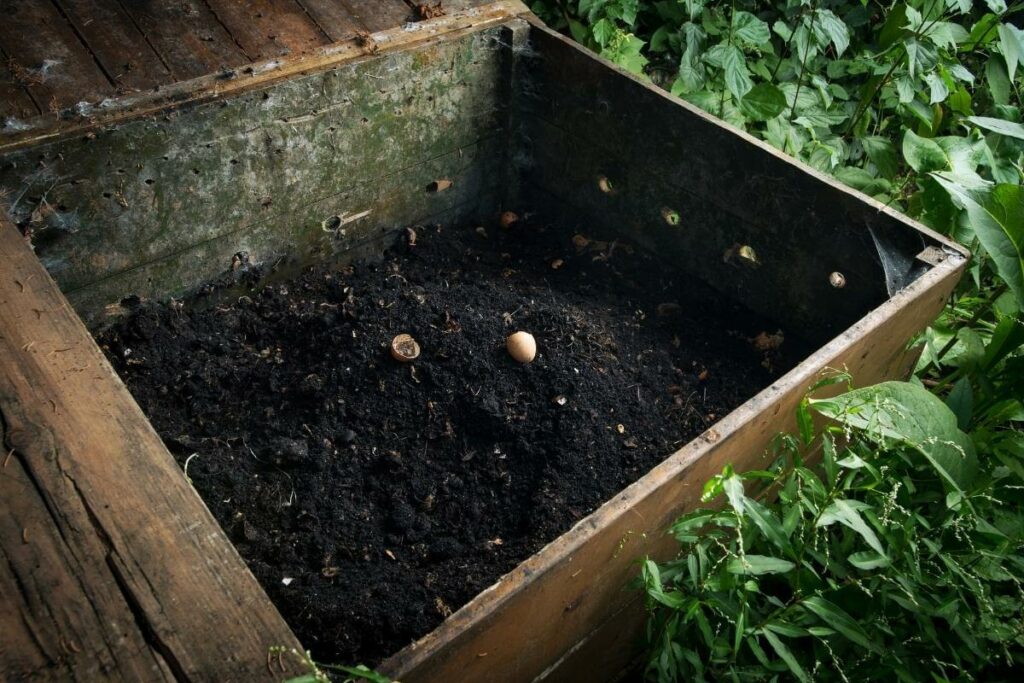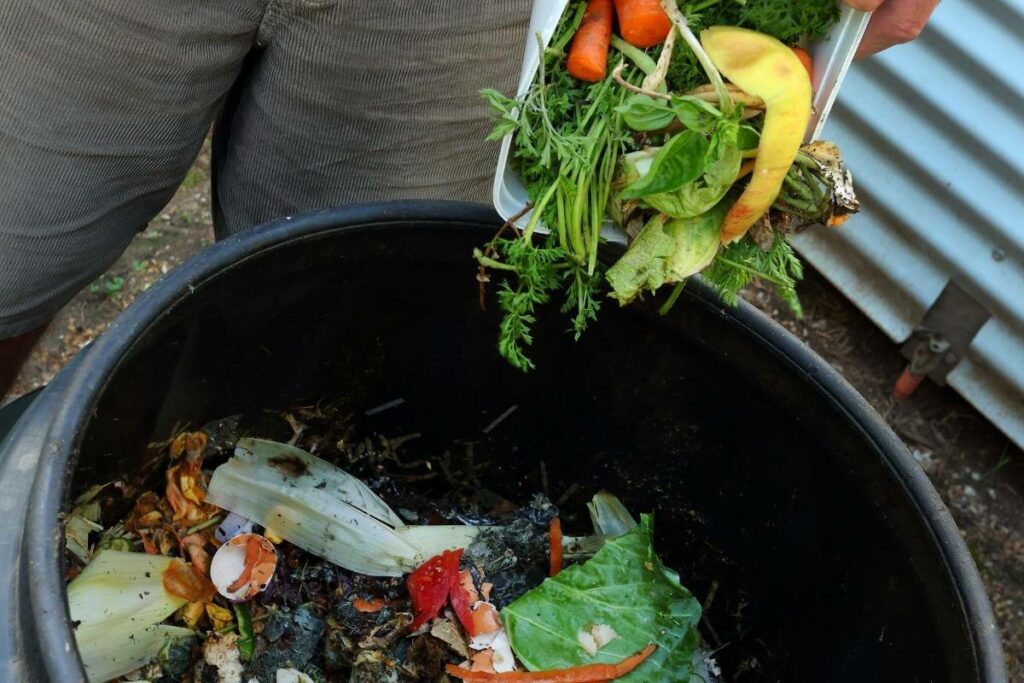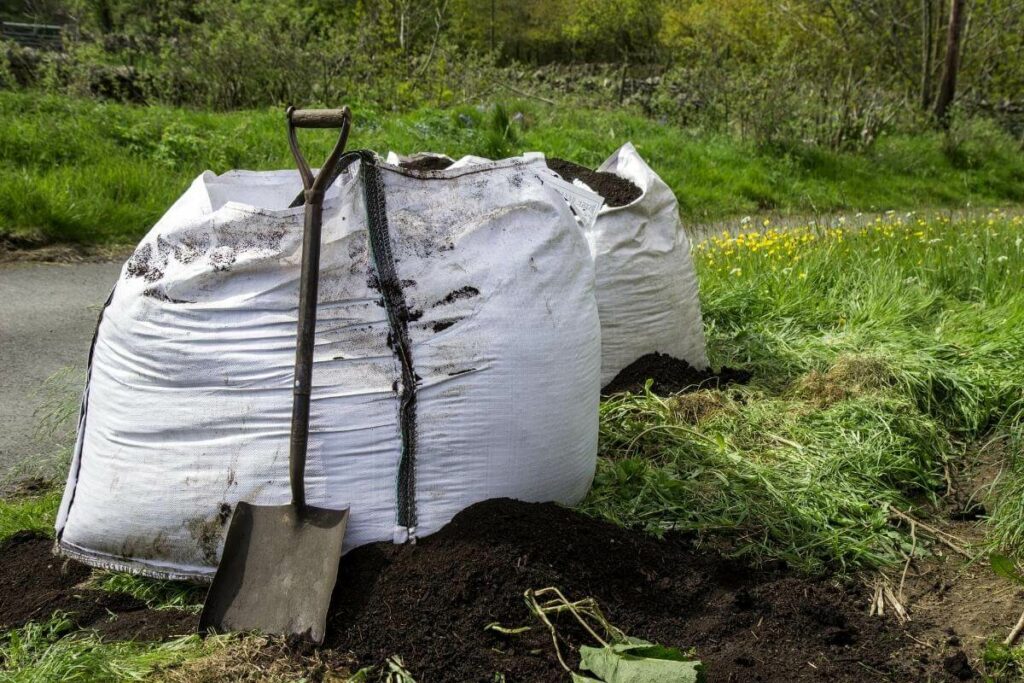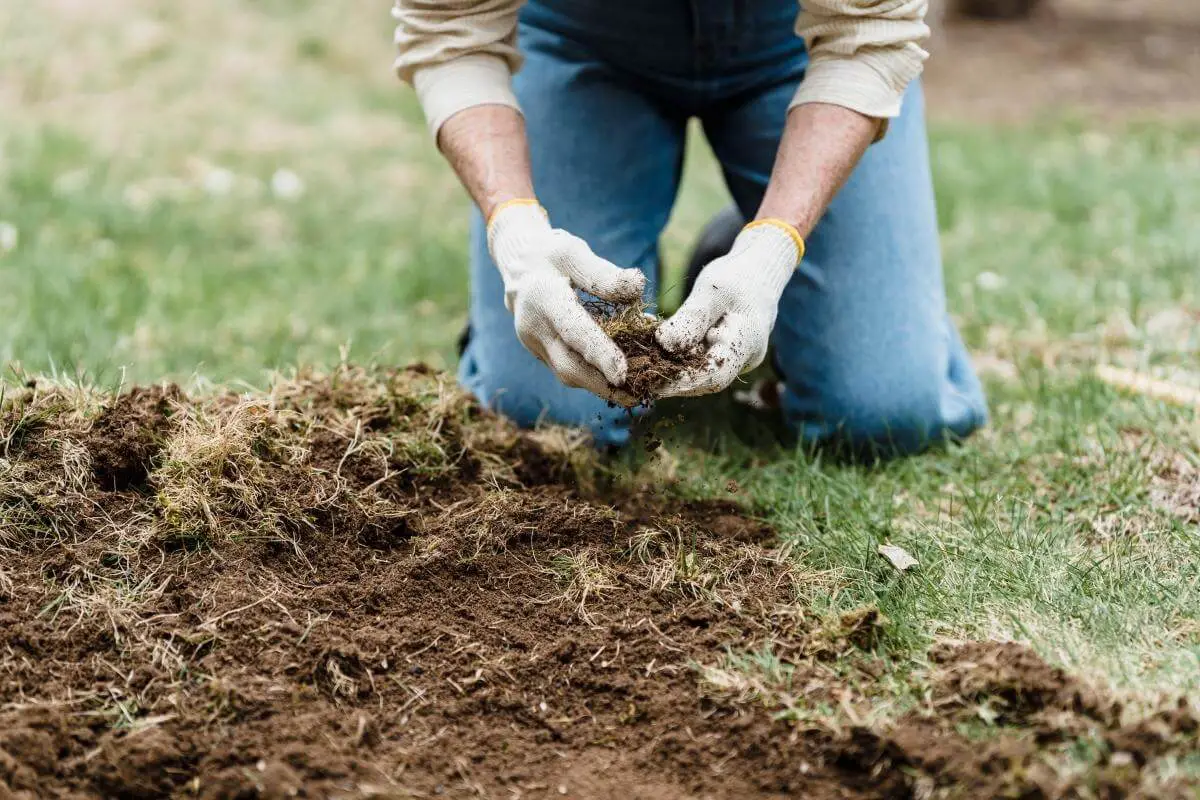Whether it’s a neglected pile, a slow-to-break-down heap in the corner of your yard, or it’s giving off a terrible smell you can’t bear, you might be wondering if your compost has gone bad.
But is it possible for all that organic matter to truly go bad, and how can you save it?
The good news is that compost doesn’t go bad – it can lose its nutritional value and become essentially worthless and may not end up as the ‘black gold’ you’d hoped for. However, it’ll still eventually break down and be absorbed into the earth. The even better news is that you can still revive it and get it working back to its full composting potential!
Signs that Your Compost Pile Isn’t Well

While we’ve established that the pile can never really go bad (after all, it’s all organic matter that will eventually break down) it can certainly look and smell unhealthy.
It can also sit there as a pile of garden trash for weeks or months without ever turning into the compost you desire.
The following are all signs that your composting pile is struggling and needs a little help:
- The pile is dry, and nothing seems to be composting
- The whole thing is stinking out your yard and your neighbors are getting suspicious
- The pile’s too wet, perhaps due to poor weather
- There’s no heat in the pile
Even if your compost’s suffering from one or more of these problems, all isn’t lost. Now we’ll look at ways to rescue the pile from each of these issues.
A Dry, Seemingly Dead Pile
When all the composting matter seems to sit there, lifeless and decaying so slowly that your compost doesn’t appear to be getting ready for spring, you might think it’s a lost cause.
But even dead leaves and matter can be brought back to composting glory with an injection of life in the form of nitrogen.
The dead, dry matter is likely made up of mostly dead leaves, wood, cardboard, and paper.
These are all carbon-rich ingredients and while they do make up most of the pile, they need some nitrogen-rich ingredients adding to kickstart the composting.
Remember This: Grass clippings, coffee grounds, fresh vegetables, and even a specially made nitrogen starter added to the pile will give it the boost it needs, and you’ll soon see your compost pile transformed into a mean, clean, composting machine.
A Smell That Makes Your Eyes Water

Fresh, healthy compost should only ever smell like clean earth, but a strong smell that reminds you of a blocked drain means something’s not right in the pile.
Again, it’s fixable.
It will probably mean your pile has become anaerobic, which means that it’s not getting enough oxygen. It can also mean there’s too much moisture in the pile, so it’s a soggy, stinking blob.
Turn the compost regularly, making sure oxygen’s getting to the whole pile. Top it up with drier, carbon-rich materials like dead leaves and cardboard and avoid adding any more nitrogen.
Over time, you’ll see that with enough turning and the right balance of materials, normal order will be restored.
The Pile’s Soaking Wet
The same issue as above will occur if the pile is exposed to too much water.
In this case, the primary job is to get rid of as much moisture as possible before doing anything else.
Spread the pile out, allow the contents to dry, and start again.
Don’t Forget: If you live in an area that gets a lot of rain, try putting your pile in a sheltered place with a roof, such as an outhouse. Failing that, invest in a compost bin to protect it from the elements.
The Pile’s Stone Cold
Yes, cold composting is a thing, but for that nutrient-rich ‘black gold’, you want a hot pile.
Your compost pile will heat up when the composting process is at its most efficient, when the microbes are breaking down the material at a good rate, and the carbon to nitrogen ratio is at its most perfect.
A cold pile is a dormant one, and can be revitalised once more with nitrogen, in the same way you’d pep up a dry pile.
Don’t overdo the nitrogen, though… compost piles are known to catch fire if they get too hot!
What about Bagged Compost?

It could be that you’ve had a very successful composting season and you’ve bagged it all up, ready to use on your roses in the spring.
Or perhaps you’ve bought compost from the store or garden center, and you’re wondering if an open bag can sit in the garage without spoiling.
Again, the compost won’t go bad, but there’s a very good chance that it will lose its nutrients to the point that it becomes useless as compost.
For that reason, storing your compost is still of vital importance.
Keep It Dry
If your compost is ready to go but your plants aren’t ready for it yet, keep the compost stored well.
Put it in sealed bags, so that moisture can’t get in and cause fungus to grow. Only store your compost in bags for a maximum of three months, though, because it still need access to oxygen.
If you have a large pile of compost, cover it with a waterproof tarp in the short term.
What about Long-term Plans?
Any longer than three months in bags, and you’ll find that the quality of the product begins to dip.
That’s why a dedicated compost shed, or plastic composting bins are better for the avid composter.
By finding that balance between keeping the compost aerated but stopping it from freezing, you’ll be able to keep the compost in nutrient-rich condition for as long as possible.
Might Consider: And strong, black-colored containers are the best as the black keeps the contents at the most consistent temperature.
Compost Will Always Decay
It might not look it, but your compost is alive, and brimming with microbes and bacteria. That’s why it will always break down and decay if left for long enough.
It won’t ever go bad, but if not tended to properly it won’t be the nutrient-rich feed you wanted.
Even then, you can still use it as mulch, so nothing is wasted.
Related Articles
- What Is Black Bag Composting?
- Worm Castings vs Compost: Which is Better?
- How Much Compost to Mix with Soil
